Korg finally unveils Drumlogue, a hybrid drum machine that can also be used as a fully-fledged synth
Analogue and digital drum sounds cross paths with an expanded ‘logue Multi-Engine
Want all the hottest music and gear news, reviews, deals, features and more, direct to your inbox? Sign up here.
You are now subscribed
Your newsletter sign-up was successful
It’s been a minute - more than 18 months, in fact - but Korg has finally launched Drumlogue, which it’s called its “first hybrid drum machine”.
Offering both analogue and digital sounds, this also includes an expanded version of the Multi-Engine found in other ‘logue products, which enables you to customise your Drumlogue with new synth sounds.
Drumlogue contains new analogue circuitry from Korg engineer Junichi Ikeuchi, who’s previous projects include the ARP 2600 M, MS-20 Mini and ARP Odyssey. This is used to generate kick, snare and low/high tom sounds, which promise to give your tracks “harmonic richness and a thick low end”.
You can augment these analogue sounds with seven digital parts, six of which are sample-based and one of which uses the aforementioned Multi-Engine. The sample-based parts can play both the built-in PCM tones and your own samples, which can simply be dragged and dropped from a computer over USB.
The expanded Multi-Engine now features Variable Phase Modulation (VPM) and noise generator engines, plus a new user slot that can host fully-fledged synth voices, complete with filters, LFOs, MIDI-controlled polyphony and other parameters.
To give you a taste of what this technology is capable of, Korg is including Nano, a new Drumlogue plugin from Sinevibes, which has previously developed a number of highly-regarded plugins for other ‘logue instruments. This is described as a fully-fledged synth with dual oscillators, optional ring modulation, a 4-pole state-variable filter with soft clipping distortion, built-in EG and built-in multi-waveform LFO.
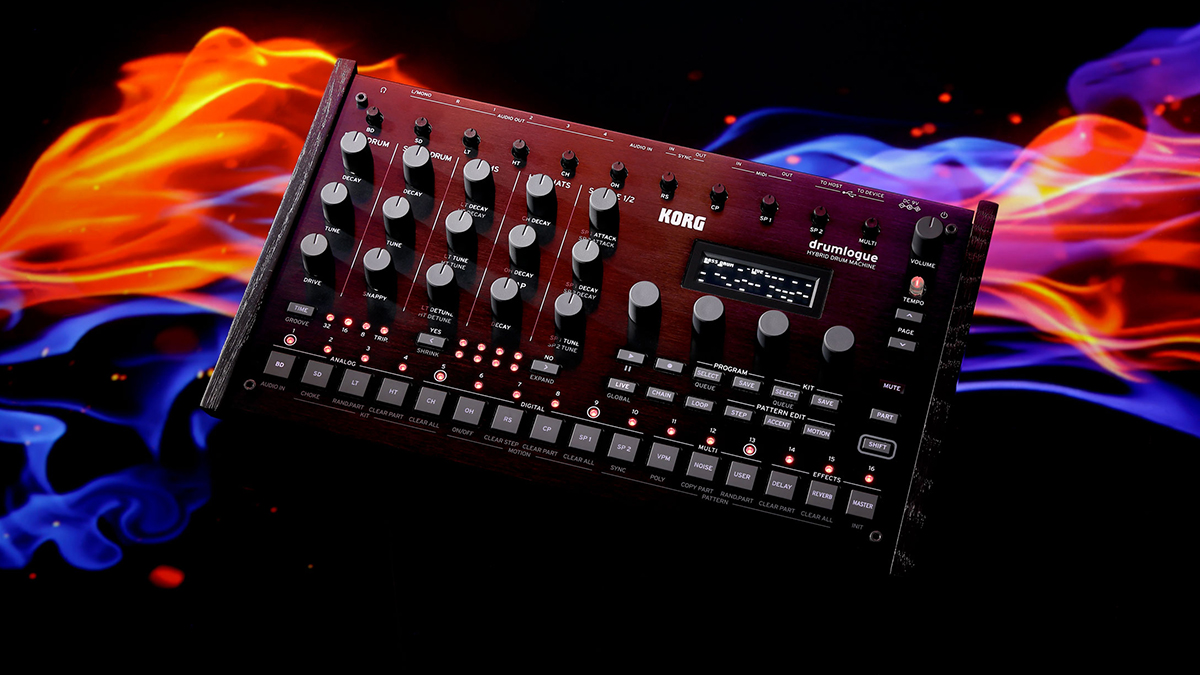
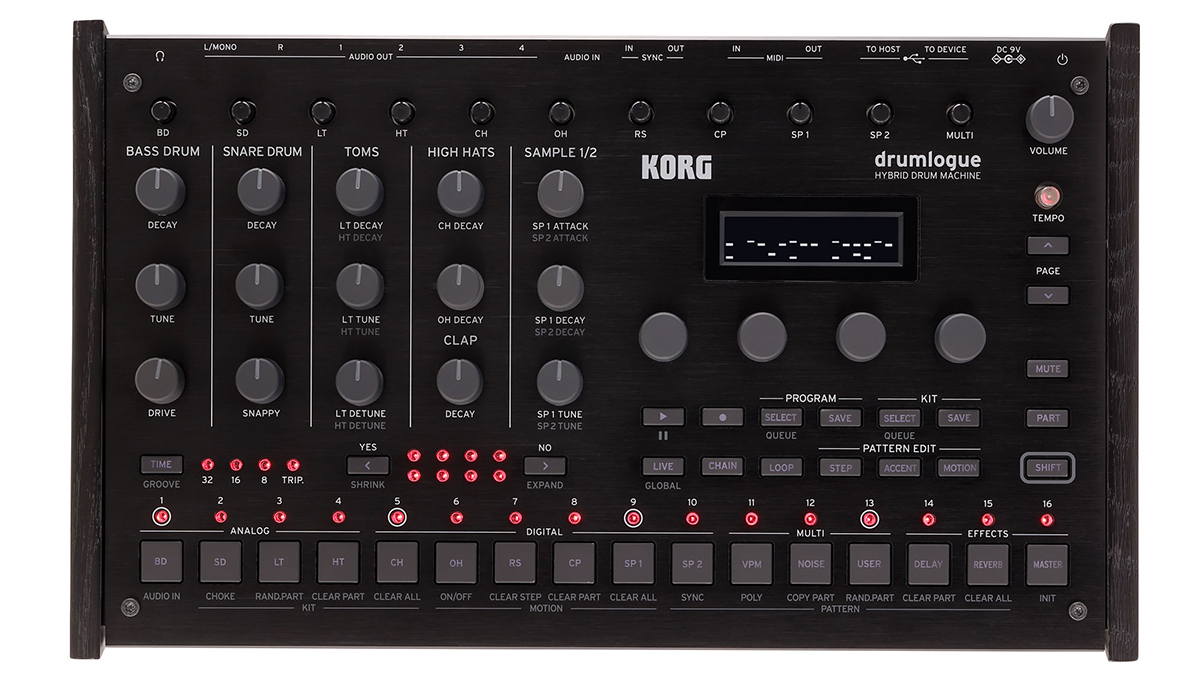
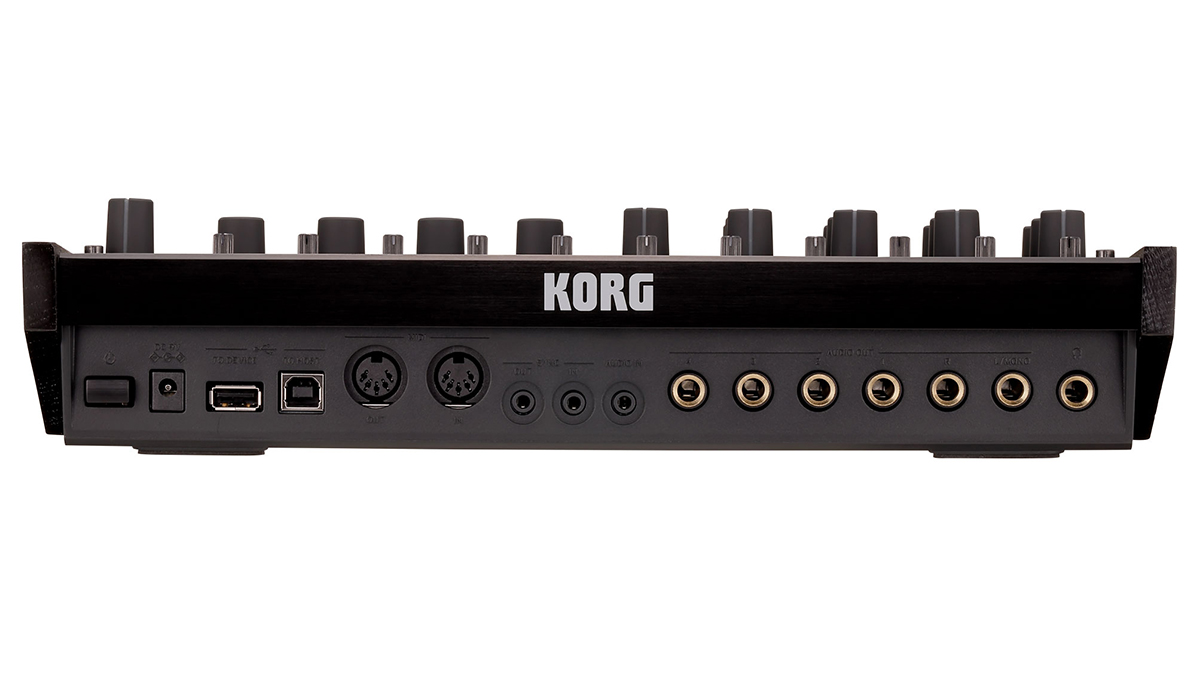
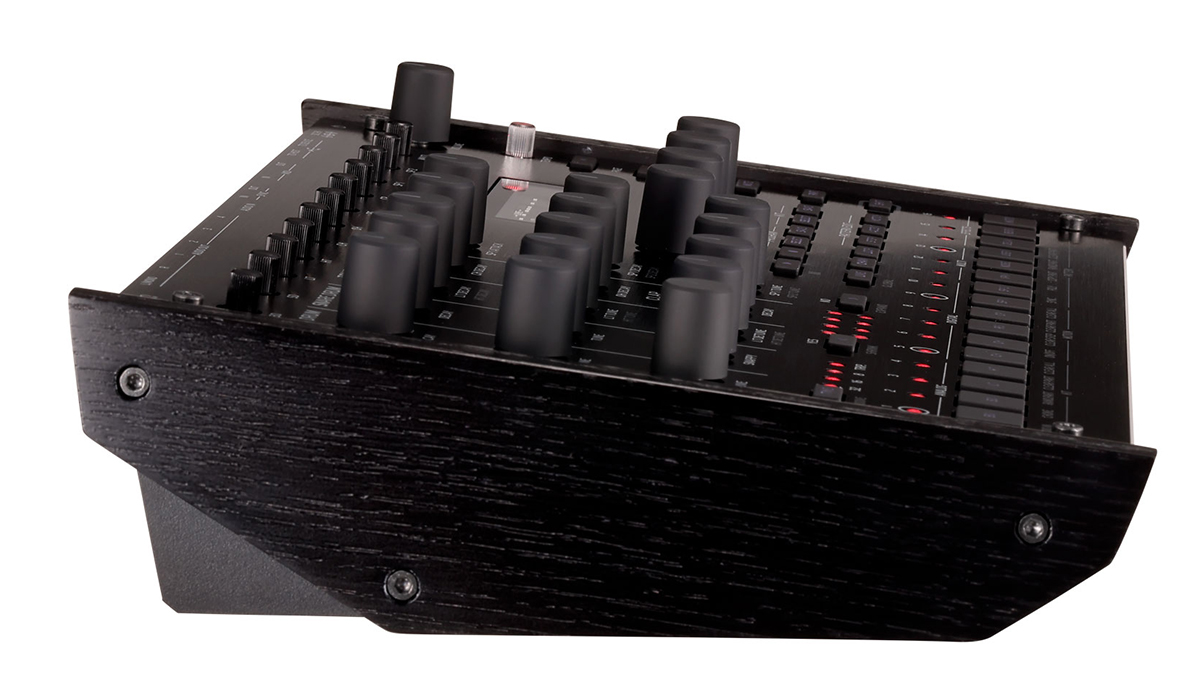
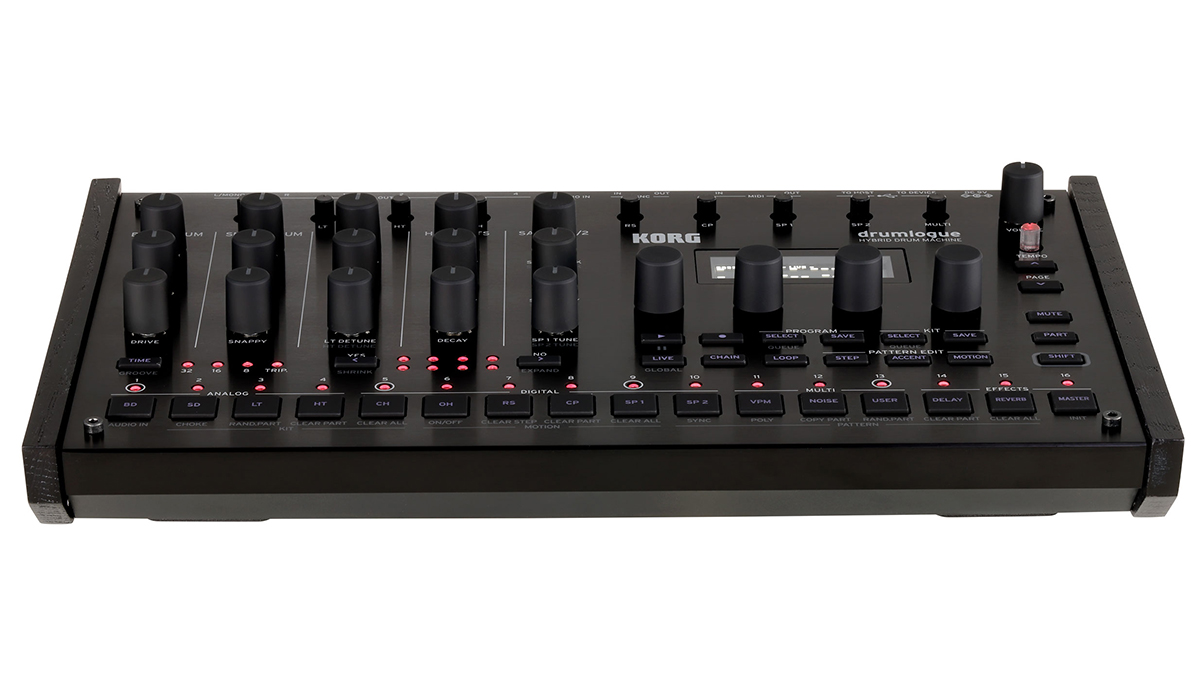
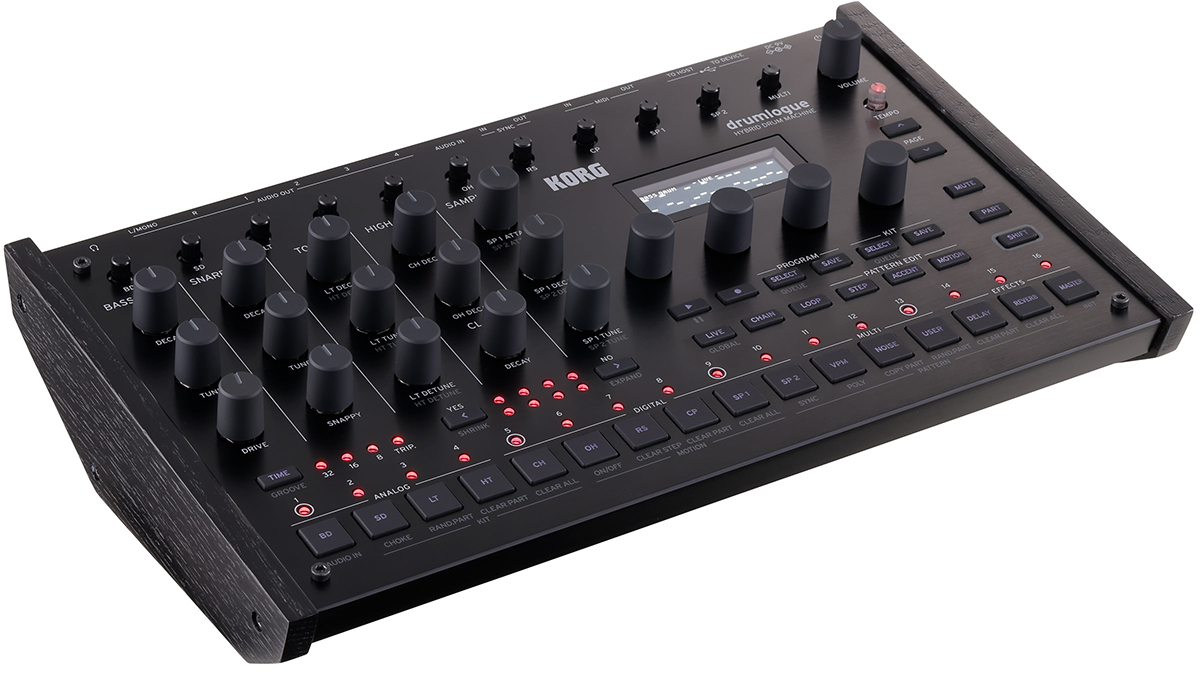
Of course, Drumlogue also boasts a sequencer - a 64-step powerhouse that enables you to generate complex patterns and polyrhythms. Features include per-step probability, per-step alternate trigger patterns, per-step micro offsets, per-track groove patterns and more. You can navigate and edit sequences on the OLED display.
Want all the hottest music and gear news, reviews, deals, features and more, direct to your inbox? Sign up here.
There’s also Chain mode, which enables you to create longer, more interesting patterns. You can also use Loop mode to switch between variations, and it’s said to be easy to record motion and accents. A randomisation feature is on hand for instant experimentation.
Effects are here, too, split into three categories - delay, reverb and master - that can be used simultaneously. The send amounts for the delay and reverb effects are set independently, with multiple return points also available.
Although the master effects apply to your whole groove, they can be bypassed on a per-part basis, so they’re only processing the parts of your choice. The master effects section has a sidechain, bus, too. There’s also an audio input, meaning that other instruments can be processed through Drumlogue’s effects.
Speaking of I/O, Drumlogue has plenty of it, including a USB-A port for connection to class-compliant MIDI devices, standard MIDI I/O, sync I/O and USB MIDI. On the audio front, there are four individual outs, and headphone and main L/R outputs. Any part can be assigned to any output, so you’ve got plenty of routing flexibility.
Last but not least, we should make mention of Drumlogue’s design, which promises to make it accessible and easy to use. The key parameters for the main drum parts have dedicated front-panel knobs for realtime adjustment, while dedicated volume pots for each part are designed to speed up the mixing process. The OLED screen, meanwhile, is said to have a simple UI that can be navigated using four dedicated encoder knobs.
You’ll also note the angle of Drumlogue’s main panel - it’s slanted towards the user for better ergonomics and visibility. The body of the machine is aluminium, and there are wooden side panels.
We’re expecting Drumlogue to be available towards the end of 2022 priced at $600/£529. Find out more on the Korg website.



I’m the Deputy Editor of MusicRadar, having worked on the site since its launch in 2007. I previously spent eight years working on our sister magazine, Computer Music. I’ve been playing the piano, gigging in bands and failing to finish tracks at home for more than 30 years, 24 of which I’ve also spent writing about music and the ever-changing technology used to make it.